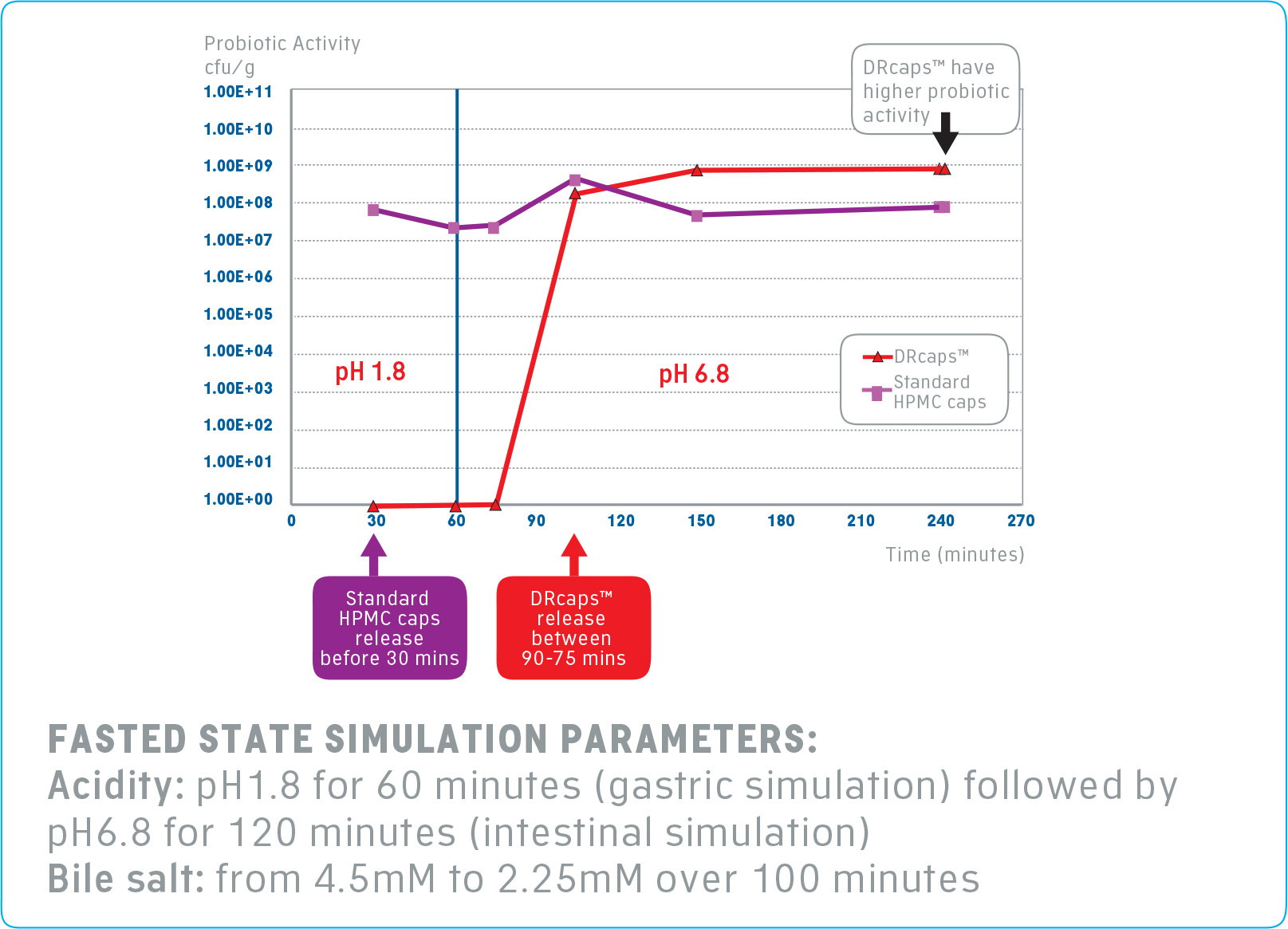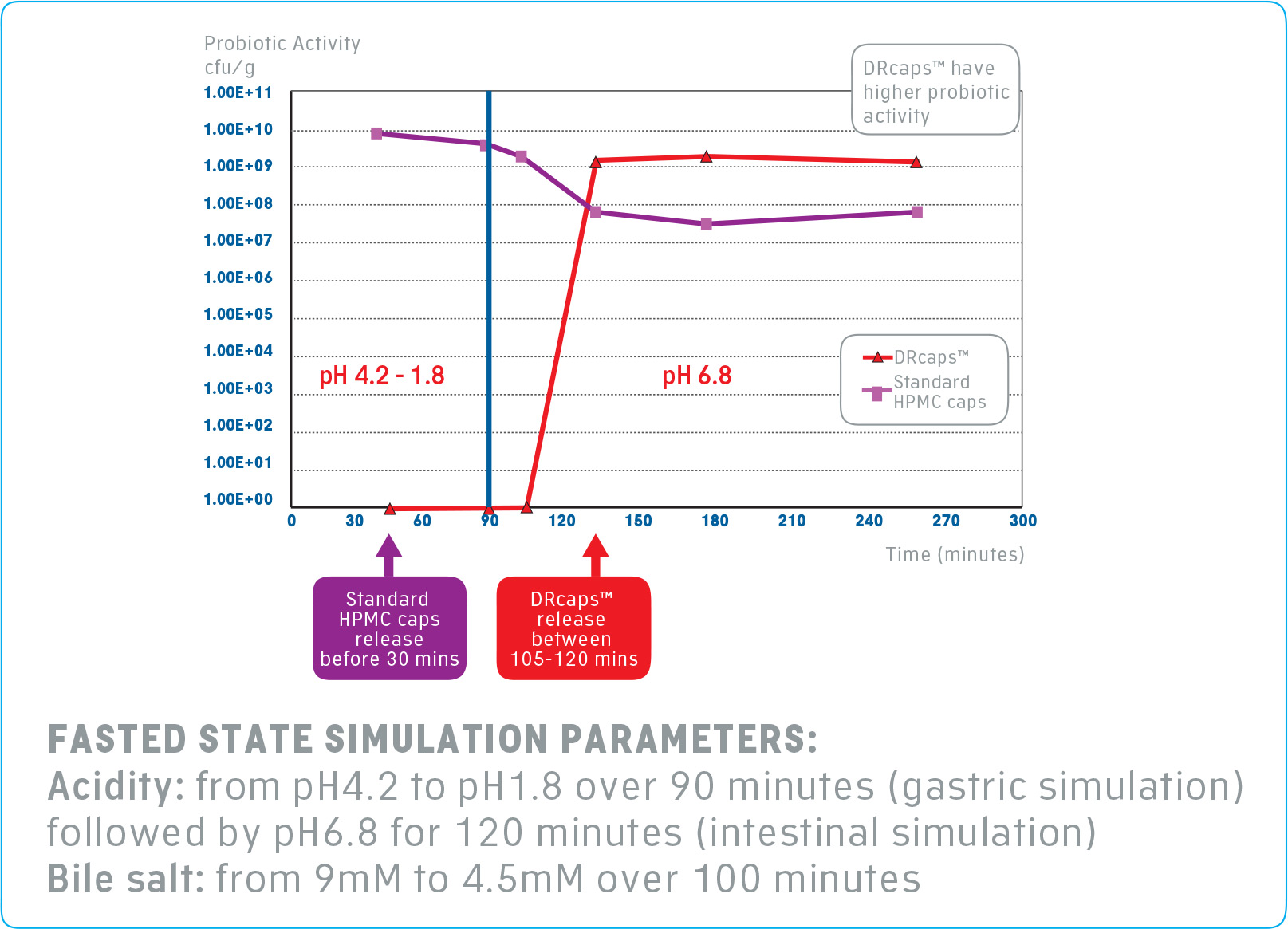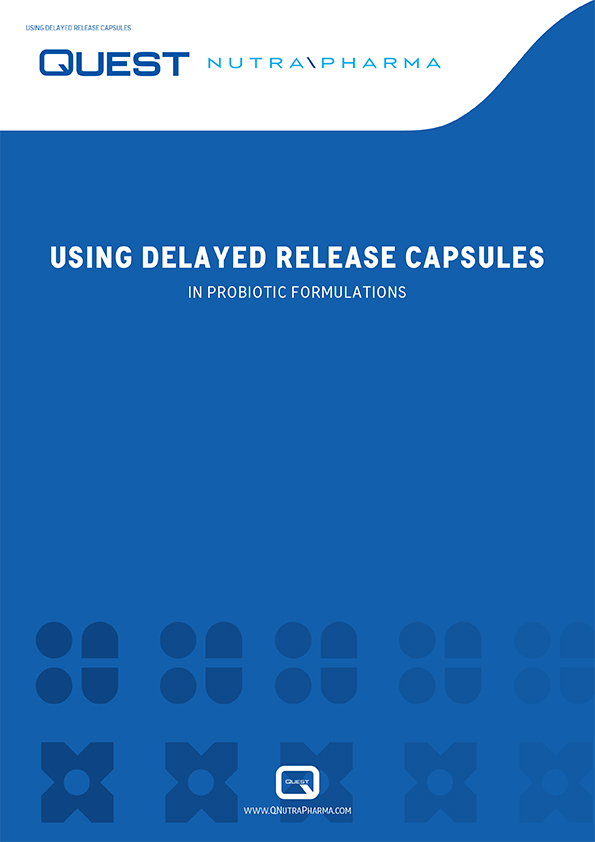Delayed Release Capsules (DRcaps) can increase the effectiveness of probiotic capsules.
DRcaps are designed to delay the release of sensitive probiotic bacteria, reducing their exposure to the acidic environment in the stomach and releasing the probiotic bacteria directly to the intestine, thereby increasing product effectiveness.
The Challenge of Gastric Transit for Probiotics
Probiotic bacteria must be able to survive the transit through the stomach (gastric system) so that they reach and colonise in the intestine to confer their health benefits. The challenges faced by probiotic bacteria in the stomach include a highly acidic environment and exposure to bile salts and pancreatic medium. Enzymes, may also be denatured and can lose their structure in the stomach, reducing their enzyme activity.
The Survivability Explanation
Historically, the leading probiotic manufacturers and brands have established the survivability characteristics of their probiotic strains, demonstrating that their bacteria strains have resistance to high acidity, pancreatic medium and bile salts.
Table 1: Acidic, pancreatic and bile tolerance of Quest probiotic strains
| Strain | Acid Tolerance (pH3 60mins 37°C) | Pancreatic Tolerance (0.2% 180min pH7.5) | Bile Tolerance (0.5%) |
| L. acidophilus | +++ (>75% survival) | +++ (>75% survival) | ++++ (>90% survival) |
| L. casei | ++ (>50% survival) | +++ (>75% survival) | ++++ (>90% survival) |
| L. rhamnosus | ++ (>50% survival) | +++ (>75% survival) | ++++ (>90% survival) |
| L. plantarum | +++ (>70% survival) | +++ (>75% survival) | ++++ (>90% survival) |
| L. bulgaricus | ++ (>50% survival) | +++ (>75% survival) | ++++ (>90% survival) |
| L. gasseri | ++ (>50% survival) | +++ (>75% survival) | ++++ (>90% survival) |
| L. paraplantarum | ++ (>50% survival) | +++ (>75% survival) | ++++ (>90% survival) |
| L. fermentum | ++ (>50% survival) | +++ (>75% survival) | ++++ (>90% survival) |
++++ Excellent +++ Very Good ++ Good + Fair
A Delayed - Release Solution
DRcaps are the next evolution for probiotic supplements. By staying closed in the stomach, acid-resistant DRcaps protect the sensitive probiotic bacteria contained in the capsule from the stomach (gastric) environment. DRcaps open and release the probiotic bacteria directly into the intestine where they can colonise and confer a health benefit.
The use of DRcaps, together with strains that demonstrate survivability characteristics (as explained earlier), creates advanced probiotic supplements that deliver a higher percentage of probiotics into the intestine alive, thereby increasing product effectiveness and delivering enhanced health benefits to the customer.
Evidence of the Benefits of Delayed Release Capsules
Tests comparing DRcaps versus standard HPMC capsules for the encapsulation of probiotic bacteria show:
- DRcaps release the probiotic bacteria between 75 to 120 minutes (depending on whether taken with food) after ingestion, compared to 10 to 30 minutes in the case of standard HPMC capsules. As a result, DRcaps directly release the probiotic bacteria in the intestine, protecting the probiotic bacteria through the stomach (gastric) transit period.
- Higher probiotic activity when probiotic bacteria are lled in DRcaps compared to standard HPMC capsules, with a smaller reduction in probiotic numbers (i.e. cfu/g) when delivered in DRcaps™. Similar results and conclusions are shown when probiotic capsules are ingested on an empty stomach (fasted state) and when ingested with food (fed state).
Table 2: Probiotic activity/release of DRcaps versus standard HPMC caps in FASTED CONDITIONS

Table 3: Probiotic activity/release of DRcaps versus standard HPMC caps in FED CONDITIONS

Download Technical Paper
By entering your name and email address we may contact you by email or phone, subject to our privacy policy.

